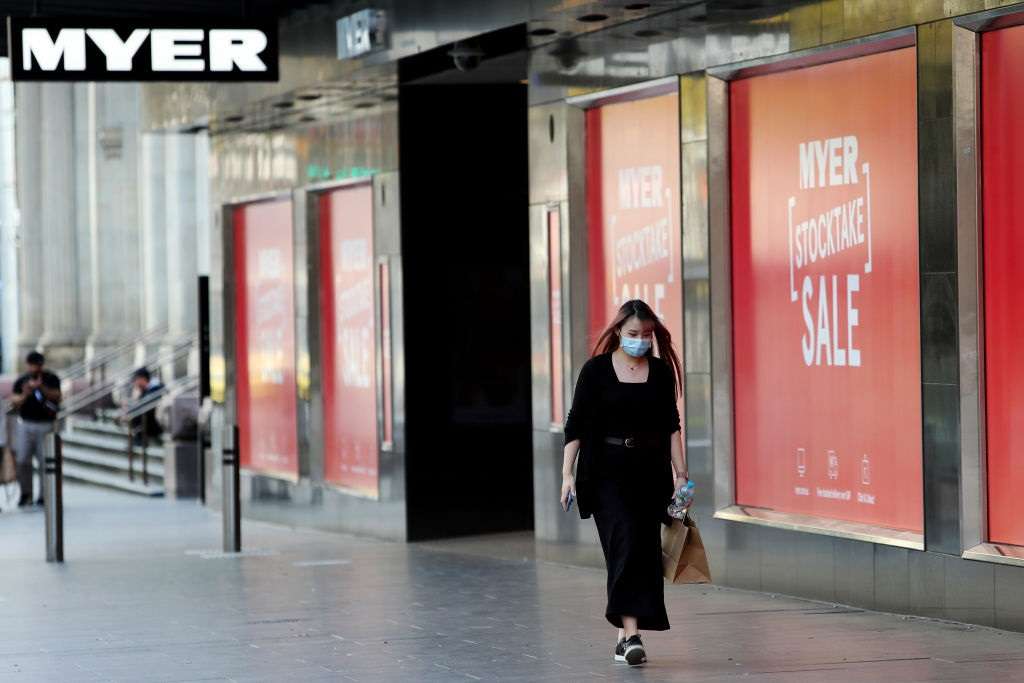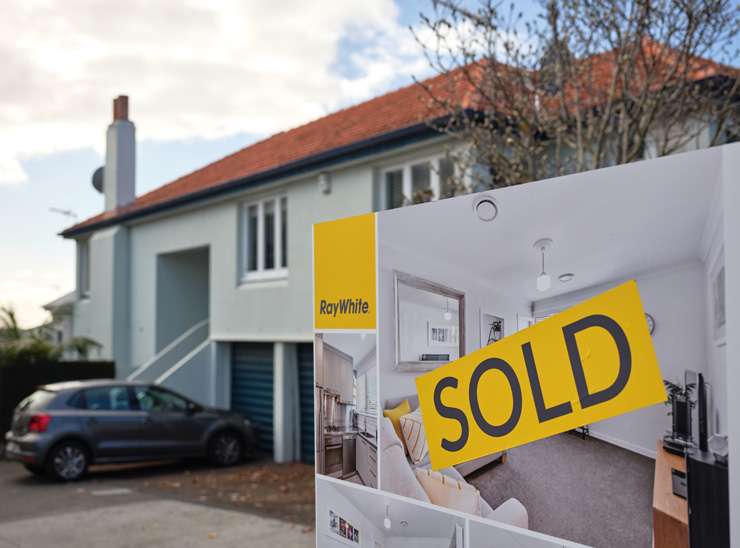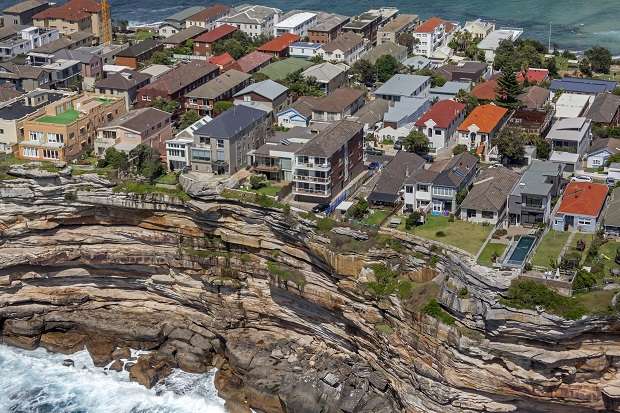At the start of the Covid-19 crisis, economists in Australia and New Zealand were predicting tough times for both housing markets.
In New Zealand, experts thought house prices would drop between 7 and 10 per cent; in Australia, pundits were throwing around doomsday-style plunges of 20, 30 and even 50 percent.
Post-lockdown, New Zealand's housing market defied expectations, with median house prices rising and buyers out in force and paying premium prices in some cases.
In Australia, the housing market didn't endure the total shutdown seen in New Zealand, and buyers and sellers continued to transact property, albeit at reduced levels. And while economists now expect more moderate price drops of 10 to 15 percent, the market's performance has been patchy and new outbreaks threaten to throw the sector into chaos.
Start your property search
Westpac NZ economist Michael Gordon says that the renewed lockdown in Melbourne has really brought home that New Zealand is at a major advantage compared to the rest of the world.

Melbourne's renewed lockdown until at least August 19 will hit any hopes of a fast market recovery. Photo / Getty Images
“Okay, we miss out on international tourists - that’s about 4 per cent of our GDP (Gross Domestic Product) - but the rest of the economy is operating without fear. It’s a massive advantage and will prove to be a major difference between New Zealand and elsewhere.”
While Gordon says New Zealand will still have to wear the cost of Covid-19, being virus free puts the country in the “least-worst” position.
He says that Australia went into their version of lockdown with an already over-supplied market. Sydney and Melbourne had suffered some big price drops from which they were only just starting recover.
Slower price rises later in year
But in New Zealand, while hard-hit tourism regions like Queenstown may see a glut of properties come to market, Gordon says that this could be countered by a possible slow-down in new building activity as the market adjusts to reduced migration.
Gordon says the rise in median house prices reported by the Real Estate Institute of New Zealand is unlikely to continue. "The jump in sales is likely to reflect pent-up interest by both buyers and sellers following the lockdown period. Meanwhile, prices are caught between much lower borrowing rates in the near term, and a severe hit to economic activity that may become more apparent later in the year as the wage subsidy expires, unemployment rises, and the international tourism market remains out of action."
The housing markets in Australia and New Zealand are both supported by low interest rates, mortgage holidays and wage subsidies. But Australia's recent Covid outbreaks are having a negative effect on confidence there.

The New Zealand property market is not seeing it's usual 'wait until spring' pause. Photo / Getty Images
Ray White New Zealand chief agency officer Treena Drinnan says: “Australia is still experiencing the economic impact of Covid, with Victoria’s escalation of cases, while we’ve pulled out. There, they are talking up not waiting until spring [to sell a house]; here it has not impacted on prices.
“Over the last few years, we’ve not seen the same degree of seasonal drop off. We’ve never seen a better time, we haven’t had the ‘wait until spring’ this year.”
Drinnan says talk of the September election pausing the market has not started yet, but says the telling time will be the end of July or August when agents start doing appraisals for properties going to market during election season.
Ray White NSW chief executive Andrew McCulloch says prices have slipped at the top end of the Australian market but he believes the market is in very good shape.
“It’s not dipped as much, although we were braced for the worst. We have had massive decreases in stock. There is less on the market but more people looking. Sales volume is pretty good, but stock is well down.
“If it’s listed, it’s probably going to sell, but going to sell for good reason.”
McCulloch adds that pre-Covid softening of the apartment market in NSW is still apparent, as the price of a stand-alone houses on a good section is only slightly more than an apartment, with the same access to amenities and train stations.
He is not predicting what will happen once the wage subsidies stop in September or new waves of infections and lockdown roll through.
“We deal with what we know right now, we don’t know what’s coming. Anyone who makes predictions is making it up. Now is a good time to sell, now is a good time to buy.”
Apartments most risky in Sydney and Melbourne
Mark Nassif, the Australian country head of OneRoof data partner Valocity, which works with brokers, valuers and lenders, explains the difference between market commentators: "Economists generally have a longer, bigger picture outlook; whilst real estate agents are more of a temperature check on a day by day basis.”

Asking prices in Sydney fell by 1 percent in May, more in some suburbs with an over supply of property. Photo / Getty Images
Nassif says that limited supply - listings volumes are down 16 per cent on last year - mean both the Sydney and Melbourne housing markets overall are holding up relatively well.
“Most suburbs had housing markets that entered the Covid era as buyers’ markets and inventory levels remain very low in both cities, sitting between three and four months of stock.
“Asking prices have fallen by 1 per cent in Sydney and 2 per cent in Melbourne during May, which is in line with most commentary. Select suburbs in these markets may obviously fall further than this depending on local supply and demand.”
However, Nassif says that the market for units, rather than standalone houses, is looking more vulnerable. Despite listings volumes falling, they are still not in balance with the drop in demand.
“New stock, especially in Melbourne, continues to enter the market - we are seeing stock levels rise by 6 per cent. This keeps the median asking prices high and masks some of the underlying trends. Inventory levels in Sydney have fallen overall, with many sellers holding back listings.”
As in any city there are many different sub-markets, with Nassif saying some suburbs are highly vulnerable while others remained relatively firm throughout Covid.
“In Sydney, Epping, Burwood, Liverpool and Penrith as unit markets at risk of price softening due to an oversupply.
“In Melbourne, the size and scale of the risk is more evident, with suburbs including Melbourne (City), Southbank, Docklands, North Melbourne, Carlton and Clayton all considered in over supply.”
Clearance rates and confidence waning
With Melbourne now in Stage 3 lockdown, and only individual house viewings, with appropriate social distancing and hygiene, and on-line auctions allowed, auction clearance rates dropped to 46.4 per cent from 49 per cent in May, although that was up from April’s record low of just under 30 per cent. In May, new mortgage lending in Australia dropped to its lowest level all year, although refinancing was at a record high.
Even before this lockdown, scheduled to last until at least August 19, NAB bank’s residential property survey had already seen the housing market confidence collapse in the second quarter to record lows. Their economists are now calling a price decline of between 10 and 15 percent, as prices have eased over the past two months.
Economist on both sides of the Tasman expect their respective economies to contract towards the end of the year, as job losses and uncertainty about employment grow, immigration stalls and recovery slows.
In the meantime, low interest rates in both countries and, in Australia, a low dollar attracting overseas buyers, will keep buyers buying in both markets.
“For buyers, to try and ‘game the system,’ and wait to pick the bottom, it’s a difficult game to play,” say Ray White analysts in the Australian Now report.
“Things can move against you, and you risk being able to get that thing that you really want, especially if it’s a family home.”
Meantime, says Westpac’s Gordon: “It’s really reassuring that we have a lot more data to help us understand this very weird situation.”












































































